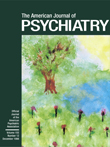The Two Mr. Gladstones: A Study in Psychology and History
By any standards, William Ewart Gladstone was an exceptional man. Four times Prime Minister of Great Britain, the moral and political voice of the Victorian era, an inveterate polemicist, a rigorous economist, a mesmeric orator, and a stern pater familias, his first government was one of the great reforming administrations in British history—passing a comprehensive education bill, enacting the secret ballot, disestablishing the Protestant church in Ireland, and enacting a progressive Irish land bill. The stern, puritanical, controlling, and evangelical Victorian Gladstone is part and parcel of political folklore, but, and thus the title of Travis Crosby’s absorbing study, he was also a man of great volatility and passion. Indeed, the Earl of Selborne, Lord Chancellor in two of Gladstone’s administrations, characterized him as having “something volcanic in the underground currents of his mind.” He worshipped control, particularly self-control, yet continually put himself in situations in which this very quality faced the sharpest of tests, be it negotiating the Home Rule bill for Ireland in the maelstrom of the House of Commons or wrestling with his passions in the company of beautiful, seductive prostitutes in the gaslit streets of London. Gladstone’s family was run on the strictest of lines, rules were punctiliously enforced, and the atmosphere was imbued with a fear of sin and depravity, yet he regularly exploded with incandescent fury in parliamentary debates and conducted intemperate and aggressive campaigns against opponents with scant regard to feelings, theirs or his own.
Crosby proposes a psychological approach to understanding these seeming contradictions. He is at pains to avoid the more familiar psychoanalytically derived approach in favor of one based on, as he puts it, “a loosely-knit group of ideas known as stress and coping theory.” He is particularly interested in coping styles—for example, Gladstone’s repeated tendency to withdraw in the face of setback. “Diplomatic illnesses, avoidance of cabinet meetings, threats of resignation, and flights from England,” he writes, “were as characteristic of his behavior as his mastery of parliamentary practices, his rousing speeches in the countryside, or his assiduously prepared budgets.” He sees these and other eccentricities as ingenious methods of coping with the claustrophobic social constraints of the time and the stresses and strains of parliamentary politics.
Crosby pays relatively little attention to early childhood experiences and their putative effects on adult behaviors. Yet, as he admits, Gladstone’s early childhood is hardly irrelevant to any attempt to understand him. He came out of a strict Evangelical background that forbade expressions of anger and discontent and emphasized self-control and discipline. Crosby finds himself wondering whether Gladstone’s passionate anger, such a striking feature of the adult politician, might be the product of a family dynamic wherein no anger could be expressed and certainly none directed against parental figures.
What Crosby documents but hardly comments on is the extent to which Gladstone was obsessional even by the meticulous standards of the time. He kept a diary virtually every day of his adult life, revealing himself to be a tentative man, introspective, occasionally anguished, meticulous, religiously scrupulous, and drawn to procrastination. There is too the approach-avoidance of his sexual exploits. On the one hand, he was sorely tempted by sexual desire and was constantly exhorting himself to avoid looking at certain books or into the windows of print shops lest he see erotic literature and pictures. At the same time, there is the burning question of what precisely was the nature of his relationships with the many London prostitutes whose well-being so perturbed him and in whose company he spent such lengthy periods. As there are the two Gladstones so there are two opposing views of this behavior. One sees it as the ghastliest of hypocrisy, a man privately indulging in sexual license while publicly professing the standards of morality of a celibate monk. The other insists on the fearless rectitude and purity of his motives and his genuine concern for the moral and physical plight of fallen women. Crosby takes a position in the middle. Yes, Gladstone was genuinely involved with prostitution as a legitimate charity and yes, as his diaries clearly reveal, he was a man drawn to specific prostitutes as “a kind of escape from the stresses and disappointments of his political and social life.”
As a biographical account of one of the great and most complex political figures of the last century, The Two Mr. Gladstones is a vigorous read—compelling and absorbing with interesting echoes of our own times. But as a psychological explanation or even analysis it fails, despite its patient scholarship, leaving us as puzzled by this contrary and contradictory man as ever.



